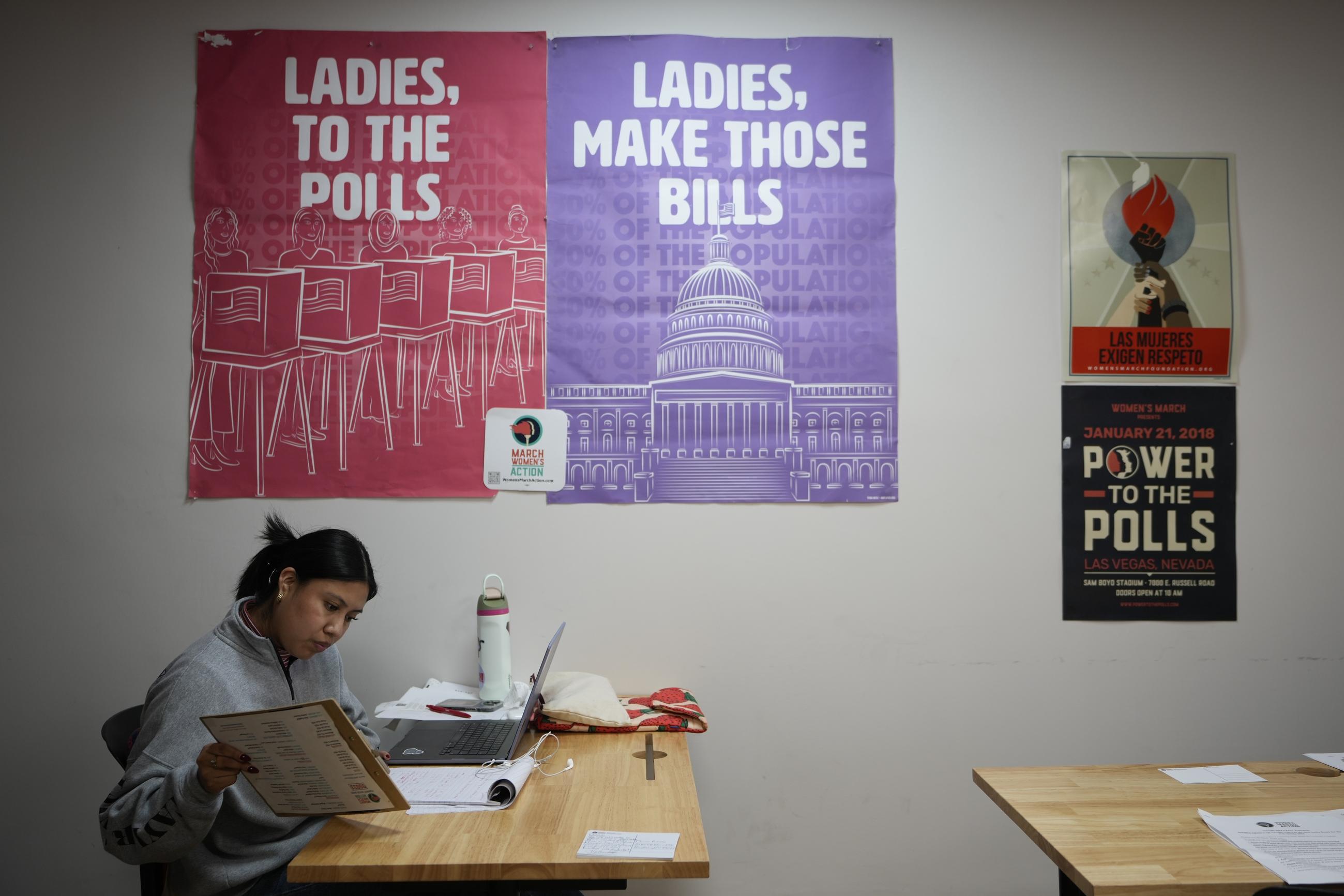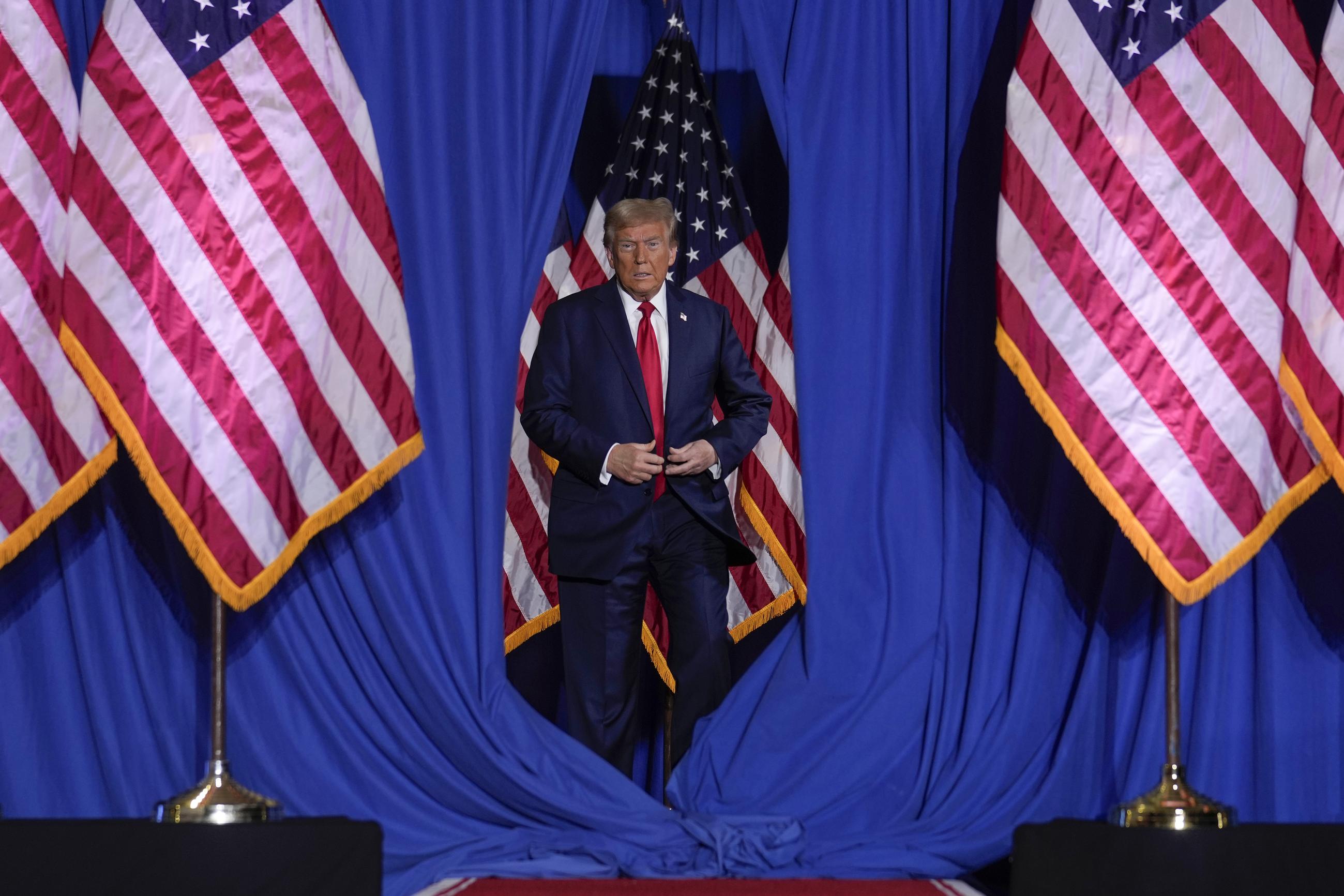Somewhat buried in a Pew Research poll from late September are an array of eyebrow-raising numbers about what President Trump’s own partisans think of him: 42 percent of Republicans and Republican-leaning independents think he has improperly used his office to punish those who say things he doesn’t like, and 40 percent say he improperly encouraged federal investigations of his political opponents.
It’s important to note that Pew includes Republican-leaning independents in its Republican numbers. That means the Republican category consists of those who say they are Republicans as well as those who initially say they are independent but “lean” Republican in a follow-up question.
Views of Trump seem to be somewhat more mixed among the independent leaners. For example, his approval rating is 78 percent among Republicans and Republican-leaning independents in this poll, compared to well over 80 percent approval among registered Republicans in most polls.
Still, even accounting for that, 31 percent say he has improperly used the office to enrich himself or his friends and family. Pew asked this same question in 2019, during Trump’s first term, and a significantly smaller 23 percent of Republicans and Republican-leaning independents said he had definitely or probably done so.
Since independents are included in the party category where they lean, there are no separate figures for them in Pew surveys. But it gives us a clear picture of the Republican electorate—the voters congressional Republicans must keep on their side in the 2026 midterm.
For the most part, these voters remain pretty happy with Trump. Seventy-four percent say Trump has improved the way the government works, 73 percent say he has improved the country’s standing around the world—notably, this was before the the Israel-Hamas ceasefire and hostage release—70 percent say he is running an open and transparent government, and 63 percent say he is setting a high moral standard for the presidency.
That leaves a quarter of Republicans who think Trump hasn’t really improved how the government works, 30 percent who think he isn’t necessarily running an open and transparent government, and more than a third who don’t think he’s setting a high moral standard for the presidency. About half of Republicans say Trump is trying to exercise more presidential power than his predecessors, and more than a quarter of those think that’s a bad thing. One quarter think he has done too much by executive order.
On balance, these numbers are still quite good for Trump. Republicans and independents who lean Republican are largely behind him. But the numbers show considerable nuance in views of his presidency, with about a third of the group showing skepticism of some of his actions. That the number reaches four in 10 on the improper-use questions shows that Republicans are not necessarily just lemmings following their leader.
On the other hand, it’s quite clear in the data that Democrats—which include Democrat-leaning independents in this survey—are nearly unified in their opposition to Trump. Nine in 10 say he has inappropriately used the office to punish people for saying things he doesn’t like and also to enrich himself and those around him, and 85 percent say the same about investigating his political opponents.
Only 8 percent of Democrats say Trump has improved how the government works or that he has improved the country’s standing around the world. More than eight in 10 say Trump is trying to exercise more power than previous presidents and it’s a bad thing—while only 1 percent say it’s a good thing, and 4 percent are unsure.
Opposition is typically easier to unify than support, which is part of why midterm elections are typically not great for the party holding the presidency. We see that playing out in these numbers. Even including weaker independent-leaners in the Democratic category, they uniformly oppose Trump and his actions.
These numbers provide an interesting indicator of what might happen in the 2026 midterms. The generic ballot question—which asks which party’s congressional candidate respondents are likely to vote for—doesn’t account for the fact that a lot of people simply don’t vote in midterm elections.
That’s a particularly acute issue for Republicans in the Trump era: Many voters turn out for Trump, but stay home for the midterms. That up to a third of Republicans in this survey aren’t super sold on Trump’s governing style could indicate some apathy heading into 2026.








